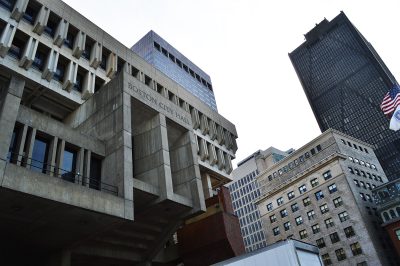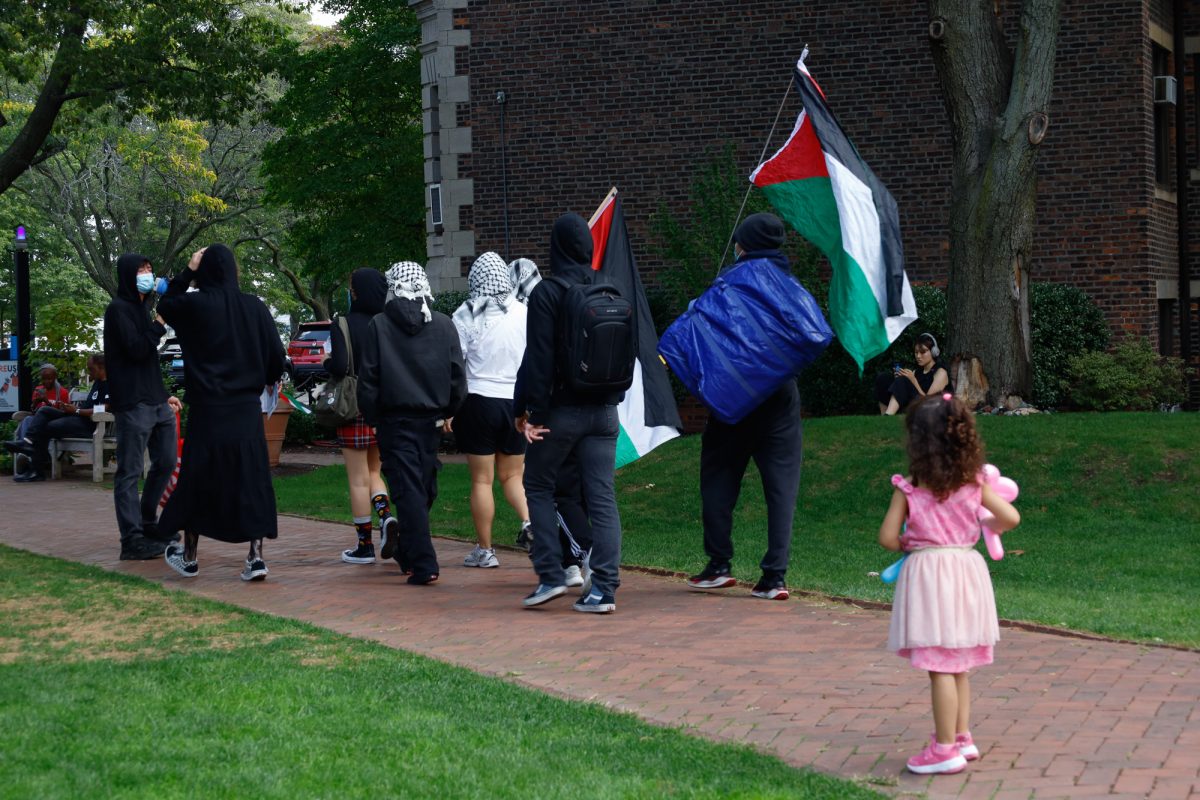
The Boston City Council held a hearing Tuesday night to discuss how the city should address the impacts of homelessness on Boston’s youth.
The council heard from several members of the group Bridge Over Troubled Waters, a nonprofit organization focused on providing services to homeless youth in Boston, according to the Bridge’s official website.
Elisabeth Jackson, the group’s executive director, spoke first and said government officials of all different rankings have been working to combat homelessness.
“On federal, state and city levels, there’s been a growing effort to break down the barriers between systems,” she said. “We have questioned and revised past policies that have prevented, rather than enabled, youth to gain assistance and created new pathways [for] homeless youth to gain stable housing [and] permanent connections.”
However, she said the city should dedicate more resources towards combating homelessness.
“Given [the city’s] recent success at decreasing homelessness among the chronically homeless, veterans and elderly, Boston is well positioned to meet the challenges of the growing number of homeless youth in our community,” she told the council.
Jackson also noted a crusade against youth homelessness would benefit Boston in the long term.
“By providing homeless youth with the help and support they need to leave the streets, we will be [significantly decreasing] chronic homelessness, and physical and mental health,” she said.
The council also heard from several other individuals associated with the Bridge, including Anthony Mitchell, who said he had personally experienced homelessness.
Mitchell advocated for spending more money on programs like the Bridge, citing his own experience as an example of their benefits.
“You can’t cure everybody the same way, just [like how] you can’t fix every problem in the same way,” he said. “I’ve been homeless for about three years now, and at [the Bridge], they took me in and really developed me as a good person for the community and everything I want to do in life. Without their help, wouldn’t know where I’d be right now.”
The council also heard from Kitty Zen of the Massachusetts Housing and Shelter Alliance, who said any solution to the youth homelessness problem should come from the input homeless people themselves.
“The true ‘experts’ on youth homelessness are the people who have lived it themselves,” she said. “The ability to have a say, in real life, for your own well being is a great way to empower you to confidently build a better life for yourself and others.”
Several attendees said they found the hearing to be both touching and insightful.
Peter Ducharme, 35, of Jamaica Plain, said he hoped the meeting would shed some light on the extent of homelessness in Boston.
“I hope people understand more about the depth of the problem of homeless youth, how many people there are and our lack of resources, so hopefully we can raise awareness of the problem,” he said.
Audrey Clark, 34, of Roslindale, said she felt overwhelmed by emotion when listening to the speakers who had experienced homelessness.
“I almost cried,” she said. “The stories they told and the arguments they made were extremely compelling.”
Arlene Snyder, 50, of Jamaica Plain, who works for the Bridge, said she hopes Bostonians will become more sympathetic toward homeless youth and understand that homelessness is often a condition inflicted upon them.
“Young people who are on the streets most often are in that [situation] because of things totally out of [their] control,” she said. “It’s often because of issues in their families … substance abuse, mental health, or maybe it’s because of their sexual orientation.”
In order to solve this problem, Snyder said city officials and Boston residents alike need to take action to address the issue as soon as possible.
“If we can serve young people sooner,” she said. “Then we can make a real difference in their lives.”


















































































































